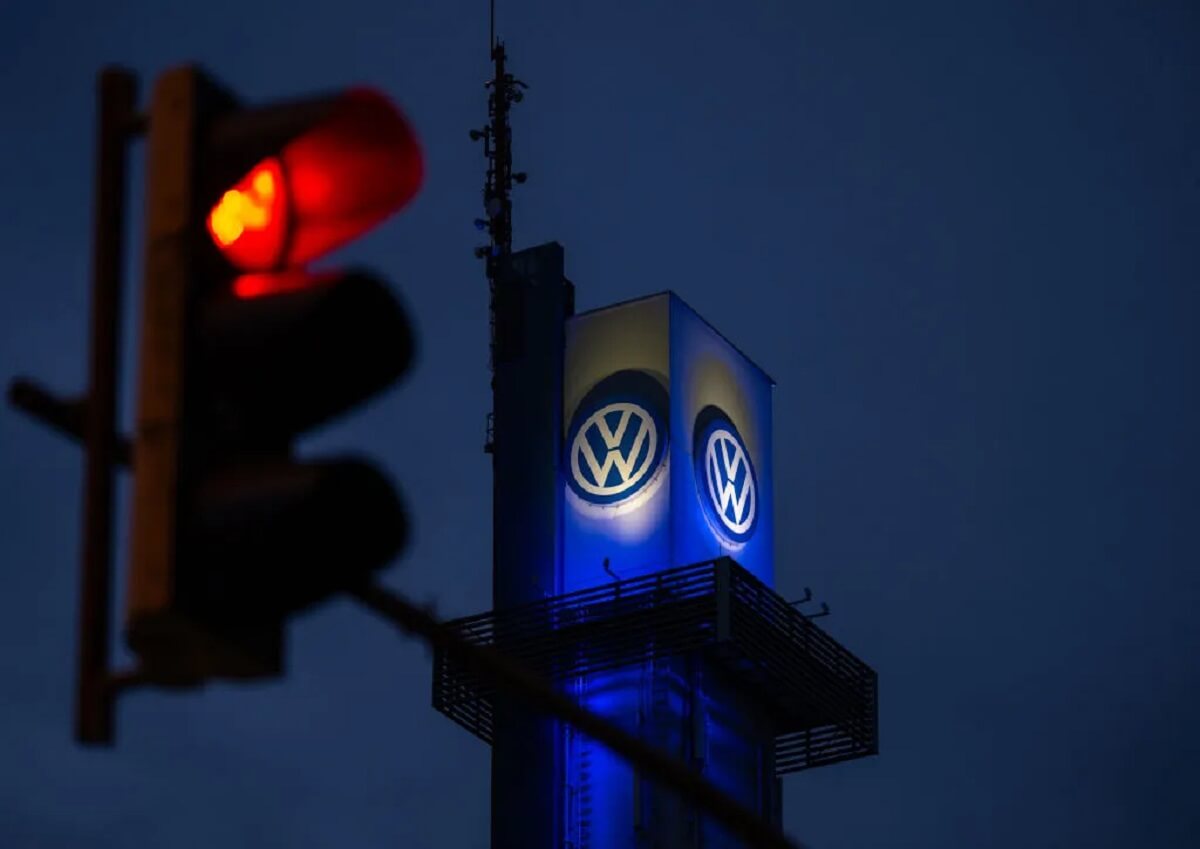It's Not Just Trump. Europe Fears China, Too
The continent is feeling the pressure of a fiercely competitive Chinese industrial-export machine.
Lionel Laurent | 05 November 2024
On Oct. 30, the stirrings of a corporate Halloween were visible in the heart of the euro-area economy — with nary a Trump tariff in sight.
While hundreds of French workers protested a potential sale of struggling chemicals firm Vencorex to a subsidiary of China’s Wanhua Chemical Group Co Ltd., employees at Volkswagen AG threatened to strike over a cost-saving plan that could bring unprecedented German plant closures as the automaker’s 15-year dominance in China comes to an end.
Both industrial scares show the scale of Chinese pressure bearing down on European firms, which will keep hurting regardless of whether an energized and europhobic Donald Trump returns to the White House. Luxury heavyweights like LVMH SE and Kering SA are being whipsawed by a weaker and more discreet Chinese consumer — as evidenced by a planned temple of bling in Beijing whose opening has been delayed — while chipmakers, chemicals firms and automakers are battling a fiercely competitive Chinese industrial-export machine helped by Beijing’s boldest stimulus measures since the pandemic. Vencorex workers say their firm will be bought out by the same rival “that sank us.”
Hence why China is spreading jitters through the European investor landscape after a third-quarter reporting season that’s so far seen almost half of top firms miss revenue expectations and feature an overwhelmingly negative tone from executives.
After offering reliable growth for European companies for years — China is Europe’s second-largest export market, driven largely by German industrial goods — Beijing is now a source of systemic rivalry and intense competitive pressure, driven by what UBS identified in July as a “rocketing” investment in domestic manufacturing capacity and pressure to localize supply chains. Chip equipment giant ASML Holding NV, medical-technology firm Royal Philips NV and French electrical-equipment distributor Rexel SA are among those raising red flags this reporting season.
Alongside semiconductors, chemicals and industrial goods — and the hit to luxury, where China can account for a quarter of company sales — the most visible symbol of distress is the automotive sector, where China is now outrunning Germany in its traditional area of strength. The euro-area’s surplus in net car exports to China has been wiped out and VW has posted two profit warnings in three months.
This would matter less if Europeans were picking up the slack — but they aren’t. And since the US is currently the world’s economic engine, Europe and China are effectively duking it out over the American consumer. According to economist Nicolas Goetzmann, “the Chinese economy’s chief competitor appears to be Europe.”
European companies aren’t entirely defenseless: They could in theory relocate supply chains, invest elsewhere or hunker down in anticipation of a China recovery. Those facing a flood of cheap Chinese goods at home could push politicians to rebalance the trade playing field — which is what’s happened with incoming tariffs on Chinese electric vehicles — or lower their own costs to compete.
But the scale of the innovation, energy and productivity gap stalking Europe, as outlined by Mario Draghi in his recent report, mean that a bigger jolt is required. The traditional German playbook of simply competing “harder” by driving down European wages may not work this time: China’s huge state-directed investments in manufacturing and unrivaled scale may mean this is a race that simply can’t be won, according to Bloomberg Economics’ Jamie Rush. And while tariffs buy time, they’re no silver bullet, judging by structural competitiveness issues in areas like energy.
A more promising route would be Germany using its advantages of low debt-to-GDP, cheap borrowing costs and high savings to invest in innovation, energy and infrastructure.
What’s happening in China and what may happen next in the US if Trump wins should snap Europe out of complacency regarding its economic model that promotes exports at the expense of domestic demand, technological advancement and geopolitical security (as Covid-19 and the invasion of Ukraine by China’s “no-limits” partner have shown.)
Old habits will clearly die hard. The EU is already looking for a negotiated compromise to tariffs on Chinese EVs; it also appears hopeful that it can find ways to talk Trump down from the trade-war ledge if he wins. As Beijing’s stimulus takes root, and with Trump’s entourage loudly blaming the US’s export-focused trading partners “for the harm they have caused,” the risk is that Europe’s economic jump scares may be just beginning.
Lionel Laurent is a Bloomberg Opinion columnist writing about the future of money and the future of Europe. Previously, he was a reporter for Reuters and Forbes.
This article was originally published on Bloomberg.
Views in this article are author’s own and do not necessarily reflect CGS policy.
